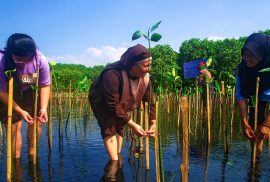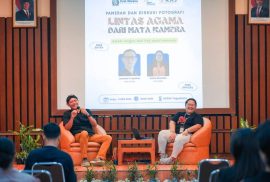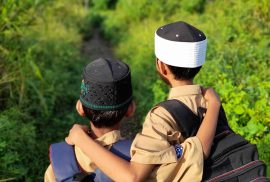Athanasia Safitri
Cited Syed Hussein Alatas’ definition of corruption as ‘passion for luxurious living’, Dicky Sofjan, MA, MPP., Ph.D, a Core Doctoral Faculty in the Indonesian Consortium for Religious Studies (ICRS), expressed his view on ethical and responsible governance in Indonesia. He presented three analytical frameworks explaining the significant challenges to governance in Indonesia: 1) ethical deficit; 2) hyper-rationalism; and 3) elite intransigence.
He shared his insight on a podcast organized by BPIP – Badan Pembinaan Ideologi Pancasila (National Agency for Pancasila Ideology Development) earlier this year in Medan. The podcast series is an effort to promote Pancasila values and collaborate with various stakeholders. Sofjan’s expertise on ethics as well as his active participation as Vice President in Globethics, an international NGO working for ethical leadership through higher education and global engagement, puts a sympathetic perspective on this issue.
















